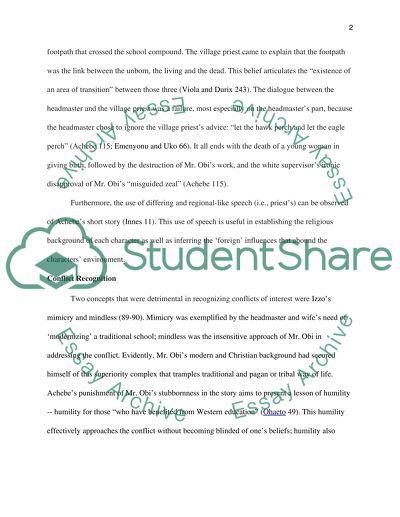Cite this document
(“Chinnua Achebe's Dead Men's Path: Conflict Recognition and Compromise Research Paper”, n.d.)
Retrieved from https://studentshare.org/literature/1436901-traditional-religious-beliefs-or-the-nature-of-the
Retrieved from https://studentshare.org/literature/1436901-traditional-religious-beliefs-or-the-nature-of-the
(Chinnua Achebe's Dead Men'S Path: Conflict Recognition and Compromise Research Paper)
https://studentshare.org/literature/1436901-traditional-religious-beliefs-or-the-nature-of-the.
https://studentshare.org/literature/1436901-traditional-religious-beliefs-or-the-nature-of-the.
“Chinnua Achebe's Dead Men'S Path: Conflict Recognition and Compromise Research Paper”, n.d. https://studentshare.org/literature/1436901-traditional-religious-beliefs-or-the-nature-of-the.


